Medical news August 17: Do not be subjective with common disease signs
46-year-old woman discovered she had cervical cancer from seemingly common symptoms.
Beware of signs of cervical cancer
Female patient NTT (46 years old, Bac Ninh ) was diagnosed with cervical cancer from common signs of inflammation. This case was assessed to be detected at a fairly late stage, the cancer cells had spread from the cervix to the upper 2/3 of the vagina. The patient was advised by the medical team at Medlatec to be treated with surgery.
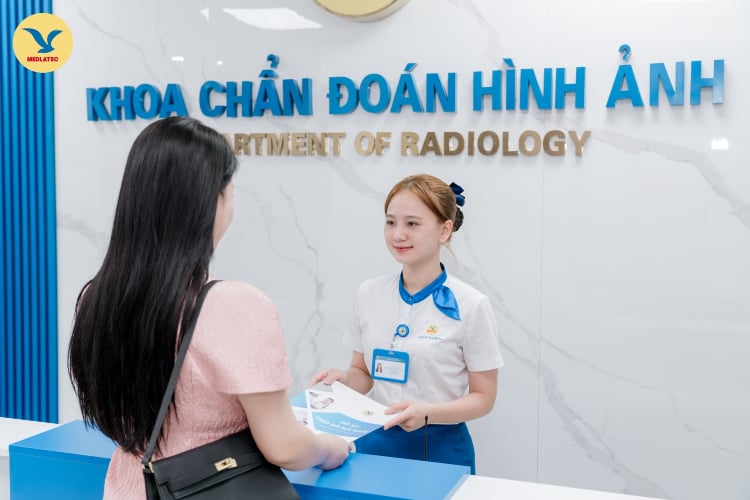 |
| To effectively prevent this disease, it is necessary to have regular gynecological examinations every 6 months, get vaccinated against HPV and screen for cervical cancer. |
Doctor Nguyen Thi Phuong, Obstetrics and Gynecology specialist, Medlatec General Hospital shared that, along with Ms. T., there are many cases that come to Medlatec Healthcare System for examination by accident, or go to the examination with only vague symptoms but are found to have dangerous gynecological cancers such as cervical cancer, ovarian cancer, and endometrial cancer.
In fact, the early stages of cervical cancer often progress silently, without obvious symptoms, so it is difficult to detect without regular gynecological examinations.
When women see any of the unusual symptoms, they need to see a specialist to get an accurate diagnosis of whether they have cervical cancer or not. Absolutely do not ignore or ignore the symptoms, which can cause the cancer to develop to a more severe stage, reducing the chance of successful treatment.
Doctor Phuong recommends that cervical cancer is a very common gynecological cancer. To effectively prevent this disease, it is necessary to have regular gynecological examinations every 6 months, get vaccinated against HPV and screen for cervical cancer.
HPV testing is one of the first tools indicated for cervical cancer screening. In addition, to prevent cervical cancer, women need to maintain good vaginal hygiene habits, practice safe sex, and develop a scientific diet and rest regimen.
But the most important thing to avoid cancer is still a careful attitude, proper attention to gynecological health and changing women's fear of regular check-ups and screening.
Be alert for foreign bodies in the upper digestive tract
On August 13, 2024, the Department of Gastrointestinal Endoscopy (A3D), 108 Military Central Hospital received a patient with a foreign body, a pill with its shell still in the middle third of the esophagus. The doctors quickly performed endoscopy and timely treatment.
Patient VT, 54 years old, from Hanoi, accidentally took 4 pills, one of which was still in its packaging. After taking it, the patient felt a choking sensation and pain in the neck.
Despite trying to eat food to get the pill down, the patient could not swallow and vomited. The patient went to the district hospital for examination, endoscopy discovered a pill with sharp edges, stuck in the middle third of the esophagus but could not be removed.
Therefore, the patient's family took him to the 108 Military Central Hospital in a state of severe pain along the sternum, accompanied by difficulty swallowing and pain, and difficulty breathing. The Department of Gastrointestinal Endoscopy performed an endoscopy and found a pill with a shell measuring 3cm x 2.5cm, with two sharp ends deeply embedded in the two walls of the esophagus, causing edema, congestion, and bleeding.
The team quickly and successfully removed the pill from the esophagus safely. After the intervention, the patient's symptoms of painful swallowing, difficulty swallowing, chest pain, and difficulty breathing were significantly reduced.
Doctor Nguyen Van Canh, Department of Gastrointestinal Endoscopy (A3D), 108 Central Military Hospital said that every year, the Department of Gastrointestinal Endoscopy encounters about 100-120 cases of foreign objects in the upper digestive tract, such as toothbrushes, medicine containers, Bluetooth headsets, coins, rings, bottle caps, bones, etc., or possibly food residue.
The cause is due to the patient accidentally swallowing, or due to the habit of not chewing thoroughly foods containing fiber and tannin (bamboo shoots, green sapodilla, mixture of ginseng, honey, raw turmeric powder...).
With the group of foreign objects that are objects, patients often come to the doctor immediately after swallowing. But in cases where the foreign object is not clearly swallowed, or foreign objects that have been formed from food residue for many days, patients often have symptoms of epigastric pain, bloating, vomiting, or cause complications such as gastrointestinal bleeding, intestinal obstruction.
People should be careful before taking medicine, dosage, especially pay attention to whether the medicine has been opened or not, to avoid choking on foreign objects. If you accidentally swallow medicine or other foreign objects, quickly go to a reputable medical facility for prompt diagnosis and timely treatment.
Saving the life of a patient with 2 cardiac arrests due to acute myocardial infarction
A 50-year-old patient from Thanh Thuy - Phu Tho was transferred by the district medical center to Phu Tho General Hospital in critical condition: deep coma, Glasgow score 7, hemodynamically dependent on high-dose vasopressors.
It is known that the patient showed signs of dizziness and fainting and was taken to Thanh Thuy District Medical Center. Here, while doctors were performing emergency examination measures, the patient appeared to have cardiac arrest and was given timely emergency care, after 20 minutes his heart started beating again (information from Thanh Thuy District Medical Center).
After applying resuscitation measures and stabilizing the patient, the Center contacted and transferred the patient to Phu Tho Provincial General Hospital for treatment by ambulance and had a resuscitation team to support during transport.
At Phu Tho General Hospital, the patient was admitted to the Intensive Care - Anti-Poison Department in a state of severe shock, Glasgow score 7, mechanical ventilation, hemodynamics dependent on 2 high-dose vasopressors.
Right in the first 20 minutes while intensive resuscitation measures were being applied, and doctors were consulting with the cardiology specialist, the patient continued to have a second cardiac arrest. Immediately, the doctors of the department performed emergency measures to stop circulation: chest compressions, electric shock, etc., after 10 minutes, the heart beat again.
At this time, the patient's condition was still very serious. The resuscitation, interventional cardiologist, and emergency cardiologist suspected that the patient had cardiac arrest due to acute myocardial infarction. The patient had a coronary angiogram that confirmed a myocardial infarction at the LAD II position and a stent was placed.
After coronary stent placement, the patient continues to receive active resuscitation measures such as: advanced mechanical ventilation, use of high-dose cardiac and vasopressor drugs to support hemodynamics, and especially applying directed hypothermia techniques, blood filtration, hemodynamic monitoring with Pico...
After 9 days of intensive resuscitation and treatment, the patient was out of danger, fully conscious, with stable heart rate and blood pressure. The patient continues to be treated and monitored by the Intensive Care and Cardiology departments.
Source: https://baodautu.vn/tin-moi-y-te-ngay-178-khong-chu-quan-voi-cac-dau-hieu-benh-thong-thuong-d222631.html



![[Photo] National Assembly Chairman Tran Thanh Man attends the VinFuture 2025 Award Ceremony](/_next/image?url=https%3A%2F%2Fvphoto.vietnam.vn%2Fthumb%2F1200x675%2Fvietnam%2Fresource%2FIMAGE%2F2025%2F12%2F05%2F1764951162416_2628509768338816493-6995-jpg.webp&w=3840&q=75)

![[Photo] 60th Anniversary of the Founding of the Vietnam Association of Photographic Artists](/_next/image?url=https%3A%2F%2Fvphoto.vietnam.vn%2Fthumb%2F1200x675%2Fvietnam%2Fresource%2FIMAGE%2F2025%2F12%2F05%2F1764935864512_a1-bnd-0841-9740-jpg.webp&w=3840&q=75)


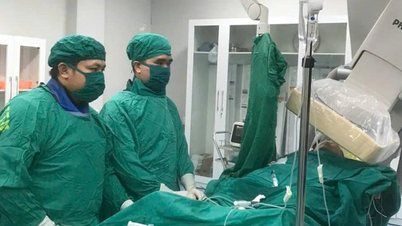

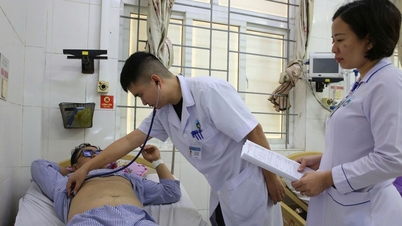

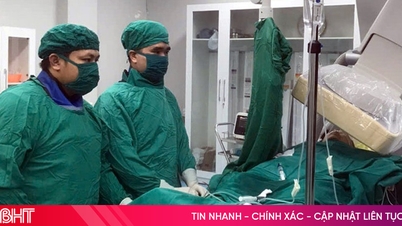

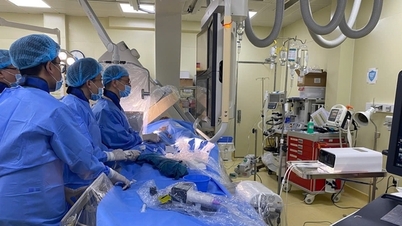



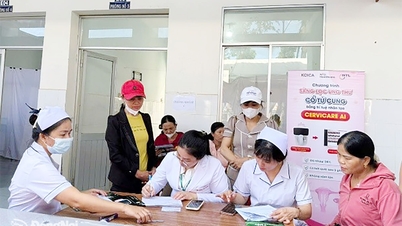


![[Infographic] Air pollution and recommendations from the Ministry of Health](https://vphoto.vietnam.vn/thumb/402x226/vietnam/resource/IMAGE/2025/12/05/1764950568593_screen-shot-2025-12-05-at-222015-png.webp)


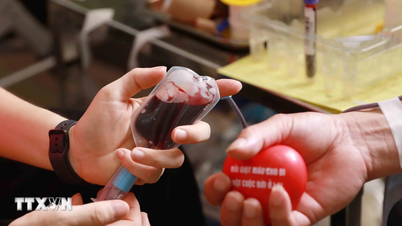

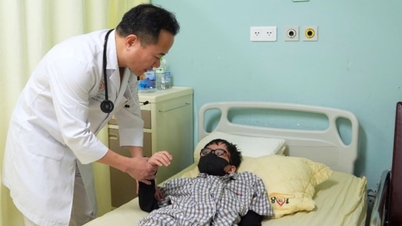































































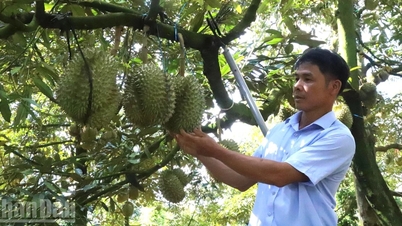


















Comment (0)